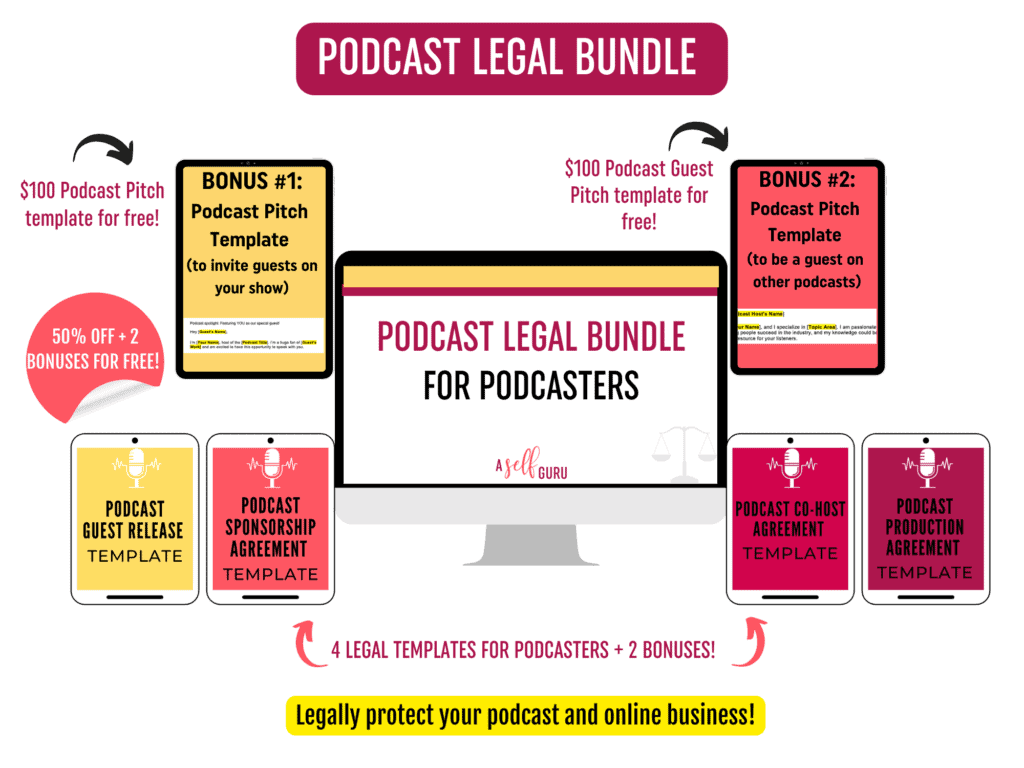Small business team building is a powerful tool that can grow your business.
Starting a small business is an exciting adventure, teeming with opportunities and challenges.
But, as any seasoned entrepreneur can tell tentatively, the heart of any successful venture beats within the team.
It’s the collective engine that drives innovation, operations, and service.
For the small business owner, team building isn’t just an investment in staff – it’s the cementing of your company’s foundation.
Well-executed team-building activities, facilitated by experts like Adventure Games Inc, lead to higher employee satisfaction and increased productivity, ultimately benefiting the business as a whole.
Fostering an environment where employees feel connected and engaged can significantly enhance their performance.
Teams that work well together are better adept at facing challenges and developing innovative solutions.
This sense of unity not only boosts overall morale but also contributes to a dynamic and high-performing workplace.
Table of Contents
Why Team Building Is Essential for Small Business
Building a solid team goes beyond mingling at the water cooler or indulging in the occasional team lunch.
It’s about fostering an environment where trust, collaboration, and shared vision thrive.
Think about it – when your team feels connected and purpose-driven, they’re more likely to go above and beyond.
And for small businesses, where every role is pivotal, maximizing these human resources can mean the difference between floundering and flourishing.
Here’s a statistic that caught my eye: studies have shown that companies with engaged employees outperform those without by up to 202%!
That’s massive potential lying in the power of your team or group dynamics.
By the way, want the secret to UNLIMITED traffic to your website? Claim your FREE copy of the traffic playbook here to get hundreds or even thousands of hungry buyers to your website.
Fundamentals of Small Business Team Building
Let’s go a bit deeper into what exactly is team building and what makes a successful team.
Defining Team Building
Team building is the process of creating a cohesive group that works effectively towards common goals.
It emphasizes fostering trust, enhancing communication skills, and solidifying commitment among team members.
Investing in team-building techniques improves individual and collective performance such as problem-solving skills and encourages friendly competition.
Activities range from structured exercises to informal gatherings, all aimed at strengthening interpersonal relationships and improving teamwork.
Components of a Successful Team
A successful small business team relies on multiple factors.
First is shared goals to ensure everyone is working towards the same objectives, creating a unified direction.
Clear Roles define responsibilities, ensuring everyone knows their specific duties.
Then you must have effective communication for sharing ideas and feedback.
You also need Trust and Accountability to build a reliable environment where members support one another.
Collaboration is also crucial, as it encourages solving problems together and leveraging diverse talents.
Together, these components contribute to a productive and supportive team that drives your small business success.
6 Strategies to Strengthen Small Business Team Building
Keep these important tips and strategies in mind to improve your small business team.
These strategies work for larger groups as well.
Open Communication
Encourage transparent dialogue within your team.
Hold regular meetings where everyone feels empowered to speak their mind constructively.
Sharing challenges and successes can help identify areas of improvement and celebrate wins together, big or small.
Recognition and Rewards
Nothing says, “I appreciate you,” quite like acknowledging your team’s hard work.
Set up a recognition system that highlights individual and group achievements.
Personalized rewards can increase a sense of belonging and incentivize outstanding performance.
Professional Development
Investing in your team’s skillset is a game-changer.
You should set the amount of time for professional development activities for new teams.
Whether it’s workshops, seminars, or online courses, providing growth opportunities can significantly boost confidence and competence.
Team-Building Activities
Out-of-the-office experiences can break down barriers.
It could be a weekend retreat, community service, or just a day at the local escape room or a virtual escape room for remote teams.
These shared experiences build camaraderie and teamwork skills in subtle, yet powerful ways.
Related Post: 9 Proven Staffing Strategies for Business
Positive Work Environment
A positive atmosphere is infectious. Cultivate a workplace where respect, kindness, and support are the norm.
Simple gestures, like a genuine “thank you” or a note of encouragement can go a long way.
Inclusivity
A diverse team brings diverse ideas.
Cultivate an inclusive culture that values and respects people from all walks of data, and watch as new perspectives fuel creativity and innovation.
Real Stories, Real Success of Small Business Team Building
Take Jamie, a local coffee shop owner whose team felt disjointed and underutilized.
By implementing weekly catch-up sessions and a ‘barista of the month’ accolade, she noticed a shift.
Productivity soared, customer feedback improved, and employees began cross-training each other, showcasing an unprecedented level of initiative.
Or consider Mark, whose tech startup thrived once he started prioritizing team-building exercises.
The cross-departmental brainstorming sessions led not only to new ideas but also fostered a culture where every voice mattered, leading to a whopping 30% increase in efficiency.
Your small business is more than your products or services – it’s a collective of individual aspirations aligned under one brand.
So team building events, exercises, field trips are a great opportunity to reach a common goal.
Ignite the potential within your team, and there’ll be no ceiling to what you can accomplish together.
How to Create a Team Building Work Environment
In your small business, your work environment is super important to promote your company culture, psychological safety and open communication.
Let’s discuss each briefly.
Company Culture and Values
A strong company culture is foundational.
It should clearly define the values, mission, and vision that guide everyday actions. These values shape interactions and decision-making.
Align employee and company values to drive employee engagement and satisfaction.
Encourage employees to contribute to and participate in building the company culture.
Implement recognition programs that reinforce these values and celebrate positive behaviors.
Promote collaboration and respect among team members.
Regular team-building activities (which we will discuss below) help to strengthen relationships, fostering a sense of unity and shared purpose.
Foster Psychological Safety
Psychological safety is critical to your small business team building.
When employees feel safe expressing ideas without fear of retribution, innovation thrives.
Establish clear policies that discourage harassment and promote inclusivity.
Encourage leaders to demonstrate vulnerability and openness.
This sets a tone where employees feel comfortable taking risks and speaking up.
Provide regular, constructive feedback and actively listen to employee concerns.
Offer resources for mental health and stress management, such as wellness programs or access to counseling services.
This not only supports psychological safety but also enhances overall well-being and productivity.
Encourage Open Communication
Open communication is vital for a healthy work environment.
Implement communication tools and software that facilitate transparent and real-time conversations.
Tools like Slack or Microsoft Teams can bridge gaps and keep everyone informed.
Create spaces where feedback can be shared openly and constructively.
Regular team meetings and one-on-one check-ins can ensure communication flows both ways.
Train managers to encourage dialogue and address communication barriers efficiently.
Equipping leaders with these skills helps resolve conflicts and build stronger, more cohesive teams.
19 Best Team Building Ideas and Activities for Small Businesses
Try some of these activities below regarding tips, ideas, and strategies for increasing team building in your small business.
Some of these will work for small teams, large groups, and even a virtual team.
Team Lunches or Happy Hour:
Organize regular team lunches to allow employees to bond over a meal.
This informal setting encourages conversations that can foster stronger relationships and bonds.
You can also get your group members together for happy hour.
This is a fantastic way to unwind and relax after a long day at work.
Workshops and Training:
Offer workshops and training sessions that focus on both professional skills and personal development.
This shows employees that you’re invested in their growth and helps build a sense of unity.
Workshops and Training:
Offer workshops and training sessions that focus on both professional skills and personal development.
This shows employees that you’re invested in their growth and helps build a sense of unity.
Group Challenges:
Engage in group challenges such as escape rooms or problem-solving games.
These activities require teamwork and can strengthen cooperation skills.
Volunteer Together:
Plan community service projects where the entire team can volunteer together.
This not only helps the community but also builds camaraderie among team members.
Office Competitions:
Create friendly office competitions such as trivia nights or fitness challenges.
A bit of healthy competition can boost morale and encourage team spirit.
Team Sports:
Organize a sports day or join a local league.
Activities like softball, soccer, or bowling can be a fun way to bond outside the office.
Innovation Days:
Allocate a day for employees to work on innovative projects or ideas not related to their usual tasks to get them outside of their comfort zone.
This can spark creativity and promote collaborative thinking in the entire group.
Team Retreats:
Plan an annual or bi-annual off-site retreat to provide employees with a change of scenery.
These retreats are great for strategic planning, team-building exercises, and relaxation.
Consider locations with inspiring views, such as seaside retreats, which offer a serene environment that enhances creativity, focus, and team bonding.
Recognition Programs:
Implement programs to recognize and reward achievements, whether through awards, shout-outs in meetings, or personalized thank-you notes.
Mentorship Programs:
Pair up team members in mentorship relationships to foster personal and professional growth. This encourages knowledge sharing and stronger inter-team relationships.
Book Club:
Start a book club where team members can read and discuss books together. This can be a great way to stimulate intellectual discussions and connect on a different level.
Team Building Games:
Integrate games like scavenger hunts, trivia games, blindfolded obstacle courses, board games, and video games to encourage teamwork in a fun, engaging manner.
Holiday Celebrations:
Celebrate holidays and special occasions with themed office parties or events.
These celebrations can be a perfect opportunity for bonding, giving gifts and relaxation.
Lunch and Learns:
Host lunch and learn sessions where employees can share their expertise on a particular subject.
This promotes knowledge sharing and continuous learning.
Outdoor Activities:
Plan outdoor activities such as hiking, picnics, or even a day at an amusement park.
These can provide a refreshing break from the office environment.
Cross-Department Projects:
Encourage collaboration by creating projects that require input from multiple departments. This can help build cross-functional teams and break down silos.
Creative Workshops:
Conduct creative workshops like painting, cooking classes, or DIY crafts.
These activities can be a relaxing way to bond and discover new talents.
Wellness Programs:
Support employee wellness with programs like yoga sessions, health challenges, or mental health resources.
A healthy team is a happy and productive team.
Peer Acknowledgements:
Create a system for employees to acknowledge and thank their peers for their contributions. This can foster a culture of appreciation and support.
By integrating these team-building activities into your small business, you can promote a positive work culture, enhance collaboration, and ultimately drive your business toward greater success.
How to Keep Employees Engaged During Team Building Activities?
Here are the top 7 tips to keep employees engaged during team building activities and get the most out of them:
- Make it voluntary: Allow employees to opt-in rather than forcing everyone to participate. This will ensure that those who do join are genuinely interested in the activity and more likely to be engaged.
- Plan exciting and diverse activities: Keep team building activities varied and fun to maintain employee interest. Consider different interests, abilities, and personalities when planning activities.
- Encourage participation from all team members: Ensure that everyone has a chance to contribute and participate in the activity. This fosters inclusivity and avoids any feelings of exclusion or disengagement.
- Create opportunities for socialization: Remember to include time for employees to socialize during team building activities. This allows them to get to know each other on a personal level outside of work.
- Incorporate learning and growth: Team building activities can also serve as opportunities for employees to learn new skills or develop existing ones. This adds value to the experience and keeps employees engaged.
- Provide a comfortable environment: Make sure the location, setting, and atmosphere of the team building activity are conducive to engagement. A relaxed and comfortable environment can help employees feel more at ease and willing to participate.
- Show appreciation: Take time to acknowledge and appreciate employees’ efforts during team building activities. This recognition can boost morale and motivation, leading to increased engagement in future activities.
Use the Right Tools and Resources for Small Business Team Building
Using the right tools and resources optimizes team productivity.
Team building tools, such as project management software (e.g., Trello), enhance organization and efficiency.
Books on team building can provide valuable insights and strategies.
Resources that support collaboration, like shared document platforms (e.g., Google Workspace), simplify communication and task management.
Investing in these tools and resources including AI tools ensures your team has the support it needs to thrive.
How to Measure and Sustain Small Business Team Building and Performance
To effectively measure and sustain team performance, it is crucial to focus on three core areas: establishing clear expectations and goals, evaluating team success through relevant metrics, and fostering a culture of continuous improvement and adaptability.
Setting Clear Expectations and Goals
Defining clear expectations and goals is the foundation of a high-performing team.
Start with outlining specific, measurable, achievable, relevant, and time-bound (SMART) goals that align with your business objectives.
Ensure every team member understands their role and what is expected of them regarding performance and productivity.
Regularly revisit and adjust these goals to keep them relevant.
Well-defined goals provide direction and motivation, enabling the team to focus efforts on achieving set targets and fostering innovation.
Evaluating Team Success
Without proper evaluation, it’s hard to gauge the effectiveness of team-building initiatives.
Use key performance indicators (KPIs) such as work in progress (WIP) limits, task completion rates, and quality of deliverables to measure performance.
Regular check-ins and one-on-one meetings can also help in capturing feedback and making necessary adjustments.
Quantifying success through these metrics allows for the replication of best practices and helps in identifying areas that need improvement.
Monitoring these indicators ensures that the team remains aligned with the business goals.
Continuous Improvement and Adaptability
Creating an environment where continuous improvement is encouraged is vital for sustaining team performance.
This involves regularly reflecting on past performance and seeking feedback to identify opportunities for improvement.
Encourage team members to share their insights and suggest innovative solutions to overcome challenges.
Adapting to changing business conditions and being open to new ideas helps in maintaining high performance.
Promote a culture where learning and development are prioritized, and flexibility is embraced. Adaptability ensures that the team can pivot when necessary and continue to meet evolving business goals.
What are the 5 C’s of Team Building?
The 5 C’s of team building are:
- communication,
- collaboration,
- cooperation,
- creativity, and
- camaraderie
These elements are essential for creating a strong and cohesive team that works together towards common goals.
Effective team building involves fostering these principles through various activities and strategies above to improve overall teamwork and success in the workplace.
What are the 7 C’s of Team Building?
The 7 C’s of team building are:
- communication,
- collaboration,
- cooperation,
- coordination,
- conflict resolution,
- commitment, and
- camaraderie.
In addition to the 5 C’s mentioned above, these additional elements focus on specific aspects that contribute to a successful team dynamic.
For example, coordination involves effectively managing tasks and responsibilities among team members while conflict resolution addresses how teams handle disagreements and find solutions together.
By incorporating all 7 C’s into team building efforts, your small business can promote a strong and cohesive team culture that drives success.
What are the 4 Main Types of Team Building?
The 4 main types of team building are goal-setting, communication, problem-solving, and trust-building.
Goal-setting activities focus on setting and achieving common objectives as a team.
Communication activities aim to improve how team members communicate and understand each other.
Problem-solving activities help teams work together to find solutions to challenges or tasks.
Trust-building activities promote open and honest communication among team members and build mutual respect and support.
By incorporating all four types of team building, your small business can create a well-rounded approach that addresses various aspects of teamwork.
ADDITIONAL BLOG POSTS RELATED TO SMALL BUSINESS TEAM BUILDING
Looking for more ways to grow your small business? Check out these helpful blog posts:
- 18 Critical questions to ask a lawyer when starting a business
- 3 Ways to legally protect your website and ensure compliance
- How to Slay Your goals in life and business
- 8 Easy Ways to get your blog noticed
- How to create a vision board for business
- 11 New strategies to grow your online business
- 11 Extraordinary benefits of blogging you didn’t know!
Final Thoughts on Small Business Team Building
Team building is essential for enhancing collaboration and communication in your small business.
Fun team building activities lead to stronger relationships among team members while encouraging creative thinking.
By investing in these activities above, you can foster a supportive environment and a winning team.
These not only boost morale but also develop critical thinking and team collaboration.
When everyone feels valued and included, performance metrics like employee satisfaction and productivity improve.
Remember that every individual in your team brings unique skills, perspectives, and ideas to the table.
As business leaders, you should embrace diversity and encourage collaboration to fuel creativity and innovation.
And don’t forget to celebrate wins together – big or small – as effective ways to strengthen team bonds and boost morale.
Looking to inspire teamwork in your business? Share this post with your team and spark a conversation that could lead to your next big breakthrough.
RELATED POSTS TO TEAM BUILDING IDEAS FOR SMALL BUSINESS
In addition to learning about team building for small business, you should check out these helpful blog posts too.
Check out my legal tips page, where I’ve compiled my most helpful blog posts and resources on all things legal for entrepreneurs and bloggers.
- What is a Partnership Agreement and Why You Need it for Your Business (+ Lawyer Template)
- The Only Guest Blogger Agreement Template You Need for Your Blog
- Affiliate Agreement: Why Do You Need It for Your Affiliate Program?
- How to Use a Virtual Assistant Contract Template to Protect Your Business
- Coaching Agreement and Contracts You Need for Your Coaching Business
- Stolen Content: How to Easily Find and Remove Stolen Blog Content
- 16 DIY Legal Document Templates for All Entrepreneurs
- Sweepstakes Template, Giveaways, and Contest Terms and Conditions
- 3 Legal Pages and Legal Contracts for Bloggers and Entrepreneurs
VISIT THIS FREEBIES PAGE TO GET 5 AWESOME FREE BUSINESS, BLOGGING AND LEGAL TIPS!
Below are some more helpful blog posts, legal tips, tools, and resources that you should check out next:
- Outrank your competition and enhance your content creation
- Beautiful Pinterest templates to increase traffic to your blog!
- What’s an LLC and when to form one?
- How to Legally Protect Your Book (with Proper Copyright Notice and Disclaimer Examples)
- AI writing tool to write blog posts 10x faster, create social media content, videos, and any kind of content to save time in business
- This SEO tool makes sure your blog posts rank on the first page of Google!
- Manage your accounting effortlessly with this amazing tool.
MORE TOOLS TO GROW YOUR SMALL BUSINESS
- TubeBuddy to grow your YouTube channel, and this is another great tool for YouTube SEO.
- Free SEO Masterclass to learn how to optimize your blog posts for SEO to rank on Google. You can also buy this awesome bundle of ebooks instead if you prefer ebooks over video training.
- Best accounting software to manage profit and loss and more!
- Best payroll service(super affordable, too)
- A great all-in-one business platform for hosting your course, email communications, sales pages, and more!
- This paraphrasing tool to create original work for the client
- A professional theme for your website
- Millionaire blogger’s secrets here and tons of valuable resources.
- How to start your blogging business and make money online
- How to make money from affiliate marketing
- The Best Freelance Writing Contract Template (for writers and clients)
- Guest Blogger Agreement to publish guest posts on your website legally and avoid any copyright infringement, Media release agreement to be able to use other people’s photos, videos, audio, and any other content legally, Privacy policy on your website to ensure your blog’s legal compliance, Disclaimer to limit your legal liability, Terms and Conditions to set your blog rules and regulations! Get all of these templates at a discounted rate in one of my best-selling VIP legal bundle here.























